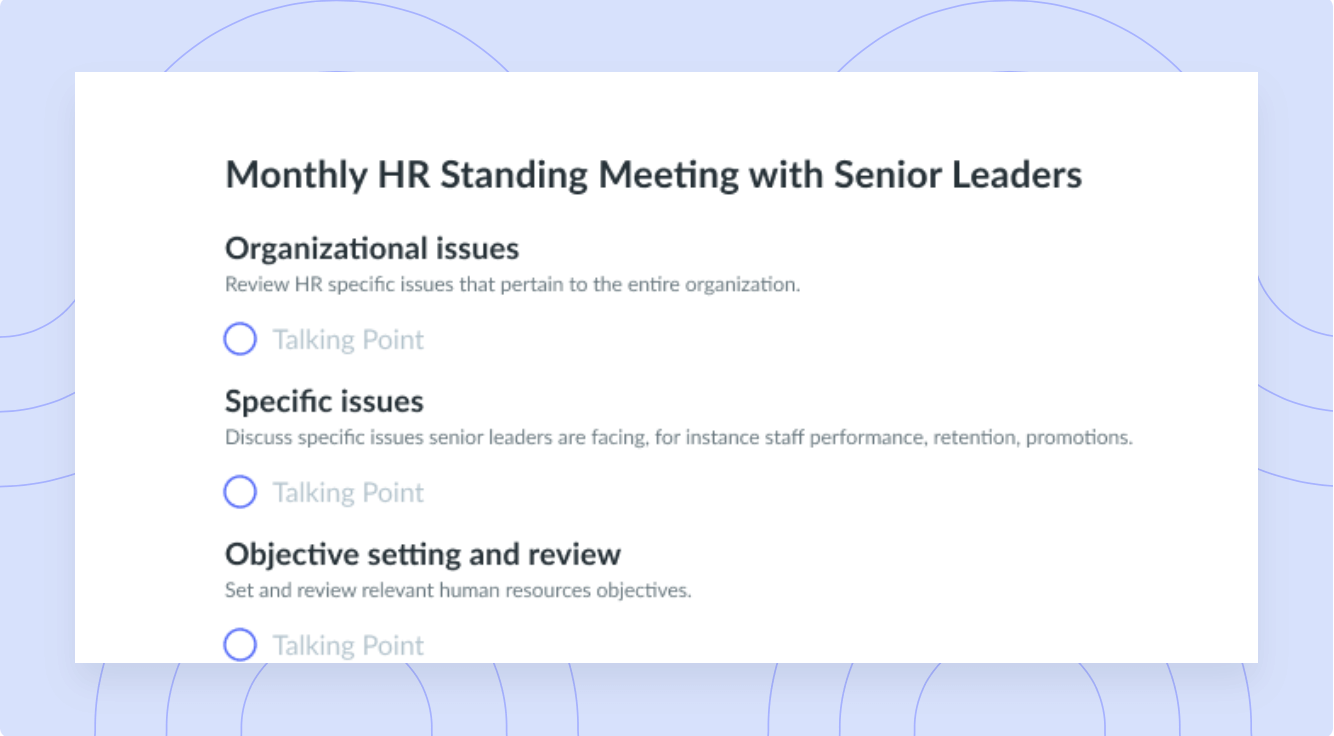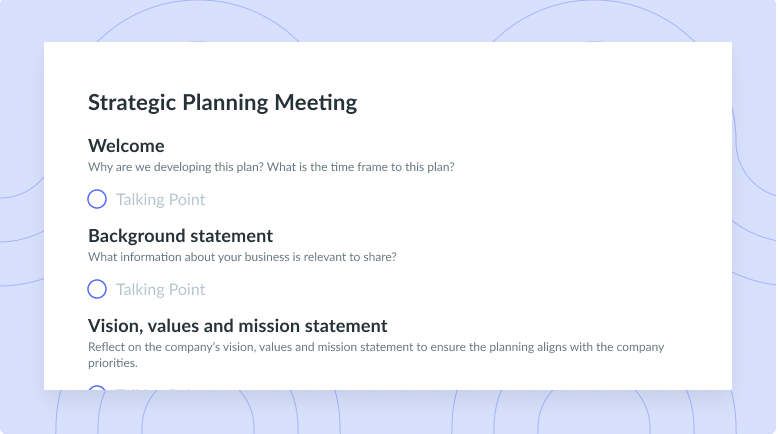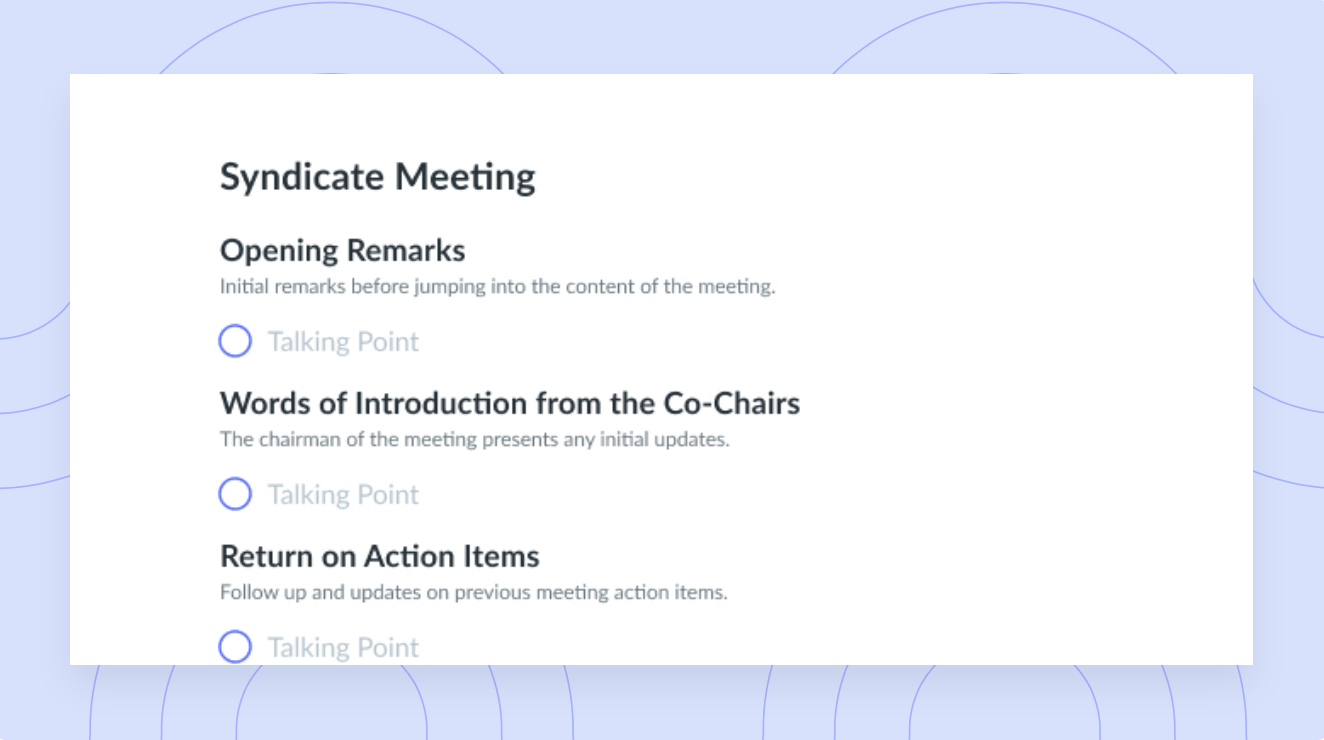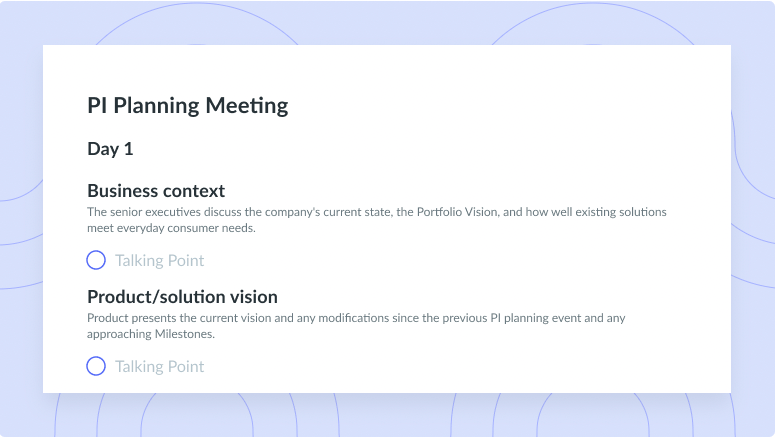Areas of Improvement for Managers: 15 Examples
15 areas of improvement for managers that will enhance decision making, conflict resolution, employee satisfaction, and overall performance.
Remaining stagnant in your career is the quickest way to fall behind. Instead, it’s important to embrace a growth mindset and prioritize personal and professional growth. Identifying areas for improvement and refining your skills will enhance your leadership skills, boost productivity, heighten employee engagement and development, and ensure your organization is operating at the height of innovation, ready to adapt to change. Keep reading to identify 15 areas of improvement for managers!
15 areas of improvement for managers
- Running productive meetings
- Having confidence
- Being emotionally intelligent
- Practicing effective communication skills
- Setting boundaries
- Delegating
- Having a growth mindset
- Collaborating
- Fostering trust
- Providing and seeking feedback
- Solving problems proactively
- Building self-awareness
- Refining your managerial style
- Improving time management skills
- Leading teams
1Running productive meetings
Learning how to run productive meetings is an essential skill among managers for several reasons, including that these meetings help managers build trust, foster engagement and accountability among employees, problem solve, make decisions, and make effective use of time. Running productive meetings also helps managers build trust with their peers, provide a safe space for giving and receiving feedback, proactively address issues, monitor progress, and follow up on key performance indicators (KPIs).
The key to running productive meetings is preparing beforehand. Fellow is a meeting management tool that helps managers drive engagement and productivity before, during, and after every meeting by fostering accountability, encouraging continuous improvement, and enabling important conversations. With Fellow, you can select one of 500+ pre-built meeting templates with recommended talking points, customize it to suit your needs, and bring it to life with your employees during your next meeting.

Build a culture of continuous improvement
for you and your team
Experience the benefits of streamlined meetings, ongoing meeting feedback, and facilitated peer-to-peer learning and collaboration. With Fellow, you’re not just leading a team – you’re leading a team towards success.
2Having confidence
Confidence is key, especially when leading a team or acting as a manager. You’re in a managerial role because you deserve to be there, and it’s important to remember that. If you aren’t confident in your ability to manage a team, you won’t be able to influence those around you. Managers who exude confidence are more likely to inspire trust and achieve buy-in among their team members. When managers can motivate others to embrace their vision and direction, they are more likely to be taken seriously by their team as well as external stakeholders. Not only does confidence inspire trust, motivate employees, and build credibility, but it is also a crucial component of decision making. Confident managers are more likely to trust their judgment and make calculated decisions, even in the face of uncertainty.
3Being emotionally intelligent
Being emotionally intelligent as a manager or leader means being able to recognize and understand your feelings, what they mean, and how they impact those around you. Managers with a high level of emotional intelligence are able to control and use their emotions to influence positive outcomes and respond effectively to the needs of their team, which helps boost productivity and efficiency. Because of their ability to lead, communicate, and interact with their peers effectively, managers with a high level of emotional intelligence are better equipped to create a positive work environment and drive performance.
4Practicing effective communication skills
Managers are responsible for leading a team as they work together to achieve organizational goals, which is one of many reasons communication skills are a must. Effective communication ensures that employees are informed and aligned as they work towards achieving shared goals. Managers who communicate openly and transparently decrease the risk of miscommunication while engaging employees, helping to create a more motivated and engaged workforce.
Thousands of leaders at companies like Shopify, SurveyMonkey, Webflow, and Gong.io have been using Fellow to streamline communication. Fellow empowers managers to optimize meetings and improve internal communication by creating a hub to collaborate on meeting agendas, assign action items, get suggested conversation topics, and exchange feedback.
5Setting boundaries
Setting boundaries at work is important for many reasons. As an executive, you set an example for those around you, so not only does setting personal boundaries at work help you prioritize your well-being, but it also creates a culture that encourages employees to do the same. It’s important to remember that creating boundaries at work will be different for everyone and will largely depend on your needs and preferences. When you set your boundaries, it’s important to communicate them with your team clearly. If you plan to be offline on weekends or only plan to answer emails up until a certain hour, communicate those parameters to your teammates.
6Delegating
As a manager or a leader, learning to delegate tasks is crucial. The reality of becoming a manager is that you can’t take everything on by yourself. While you may be used to your role as an individual contributor, your role as a manager requires you to empower those around you, and this means improving your delegation skills. Not only will delegating free up time in your calendar to work on more high-level tasks, but it will also empower your teammates, create opportunities for growth, professional development, and empowerment, and increase the overall effectiveness of your organization.
Fellow makes delegation a breeze by providing you with the tools you need to assign action items directly in your meetings. This means you can delegate in real-time and foster follow-through, increasing the likelihood of tasks getting done quickly and efficiently by the proper stakeholders.
7Having a growth mindset
Not only will embracing a growth mindset serve you in your role as a manager, but it will also equip you with the mindset you need to succeed for years to come. Possessing a growth mindset as a manager means you’re constantly willing to grow and evolve as you meet new challenges. Whether these challenges involve navigating a remote team that operates out of different time zones or coaching a new teammate to take on more responsibility, operating with a growth mindset means you approach them with an open mind and improve through effort, learning, and persistence. Managers who possess a growth mindset are less likely to become discouraged as they navigate new challenges and are more apt to feel empowered and content when compared to those who aren’t able to embrace a growth mindset. Adopting a growth mindset will have a profound impact on you, your team, and your organization.
8Collaborating
As a manager, effective collaboration will be at the forefront of everything you do. Not only will you be responsible for collaborating within your team, but you’ll also be responsible for collaborating cross-functionally to achieve organizational goals.
With Fellow, you can centralize collaboration through collaborative meeting agendas, time-saving templates, multi-assignee action items, and so much more.
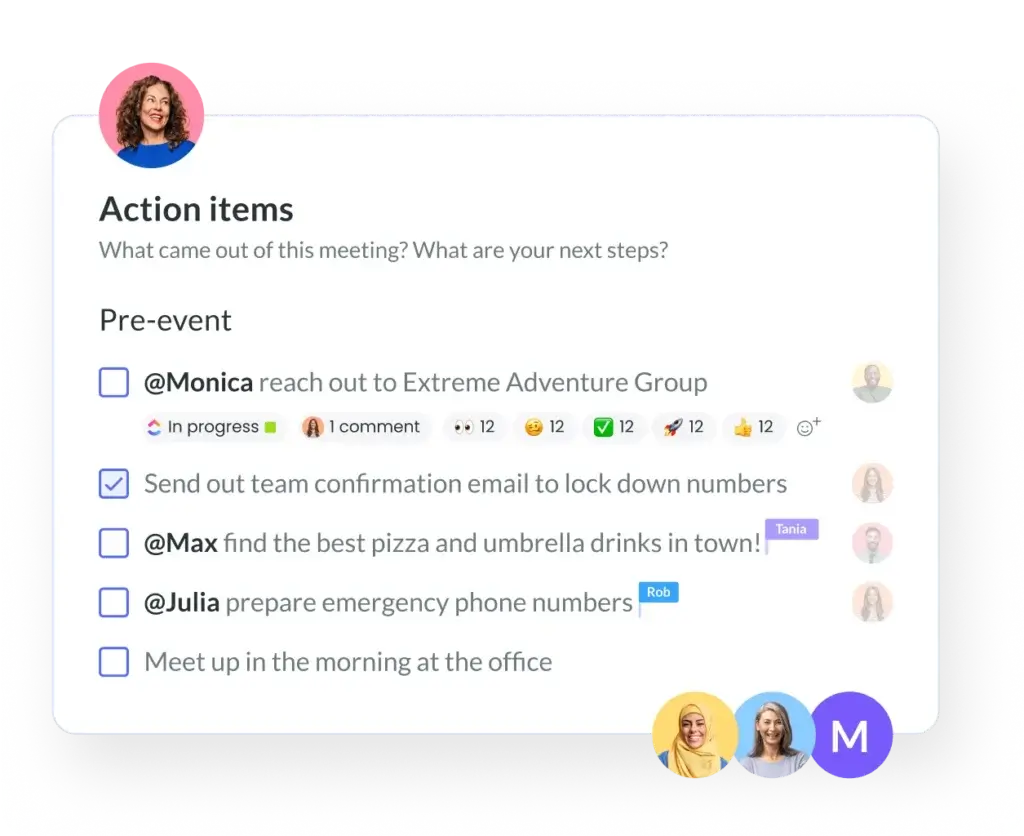
9Fostering trust
Trust lays the foundation for a healthier workplace culture, which is why it’s important never to stop improving your ability to foster trust. When employees trust their managers, they are more likely to be engaged, committed, and motivated to contribute their best efforts to the organization. Additional benefits of fostering trust in the workplace include enhanced employee engagement, increased productivity, effective leadership, greater retention and loyalty, improved conflict resolution, and improved psychological safety.
10Providing and seeking feedback
Manager feedback can occur one of two ways: either you, as the manager, are providing your peers or direct reports with feedback, or you’re receiving feedback from others on your team. What’s most important is that you learn how to both give and receive feedback respectfully. Whether you’re the giver or receiver, refining your feedback skills will contribute to better communication, improved collaboration, growth, and overall success.
Fellow makes the process of giving and receiving feedback a breeze with its feedback feature. With this feature, you can incorporate feedback into your team’s day-to-day experience and track progress over time. The pre-built templates help you create a feedback request without overthinking the process. The best part? You can respond on Fellow or directly through Slack so you can begin to implement positive change right away.

11Solving problems proactively
Proactive problem-solving means anticipating problems before they arise. By learning to address issues early on, managers can handle challenges before they escalate into significant problems, helping to mitigate risks and create a less volatile work environment. This approach leads to fewer operational disruptions, organizational resilience, and a happier, healthier workforce.
12Building self-awareness
Being self-aware as a manager means having the ability to drown out the noise and focus on yourself and how your actions, thoughts, emotions, and the words you speak align with your personal standards. As a manager, increasing your self-awareness enhances decision-making, empathy, and emotional intelligence; improves your ability to communicate effectively and resolve conflicts; boosts employee engagement; and encourages long-term career success.
13Refining your managerial style
A managerial style refers to the approach, attitude, and behaviors you exhibit when interacting with your team and making decisions. Effective managers adapt their managerial style to their situation and make continuous improvements over time. An ideal manager will have the ability to leverage different styles during different scenarios to achieve the optimal outcome.
14Improving time management skills
Effective time management leads to improved productivity, enhanced decision-making, and reduced stress. Learning to manage your time more effectively can be as simple as creating a checklist at the start of each day or as complex as blocking off time in your calendar for deep work each week. It’s important to note that as a manager, you are not only responsible for how you use your own time but also for how your employees leverage theirs. Managers who master time management are better equipped to lead their teams and contribute to organizational goals.
15Leading teams
As a manager, one of your primary responsibilities is leading a team. Refining your leadership skills will ensure you have the knowledge and resources necessary to lead your team with confidence, allowing you to guide, motivate, and inspire your team members as they work toward achieving organizational goals.
One powerful tool to improve your team leadership skills is coaching. By acting as a coach for your team, you establish a safe space where employees can openly address concerns and celebrate victories. However, effective coaching requires meticulous planning and thoughtful execution, especially during your initial one-on-one sessions.
That’s where Fellow’s 1-on-1 Feedback Coaching Session Template can help. This expert-approved template offers a structured agenda that explores areas of growth and sets professional goals, allowing you to foster meaningful dialogues that drive individual and team development.
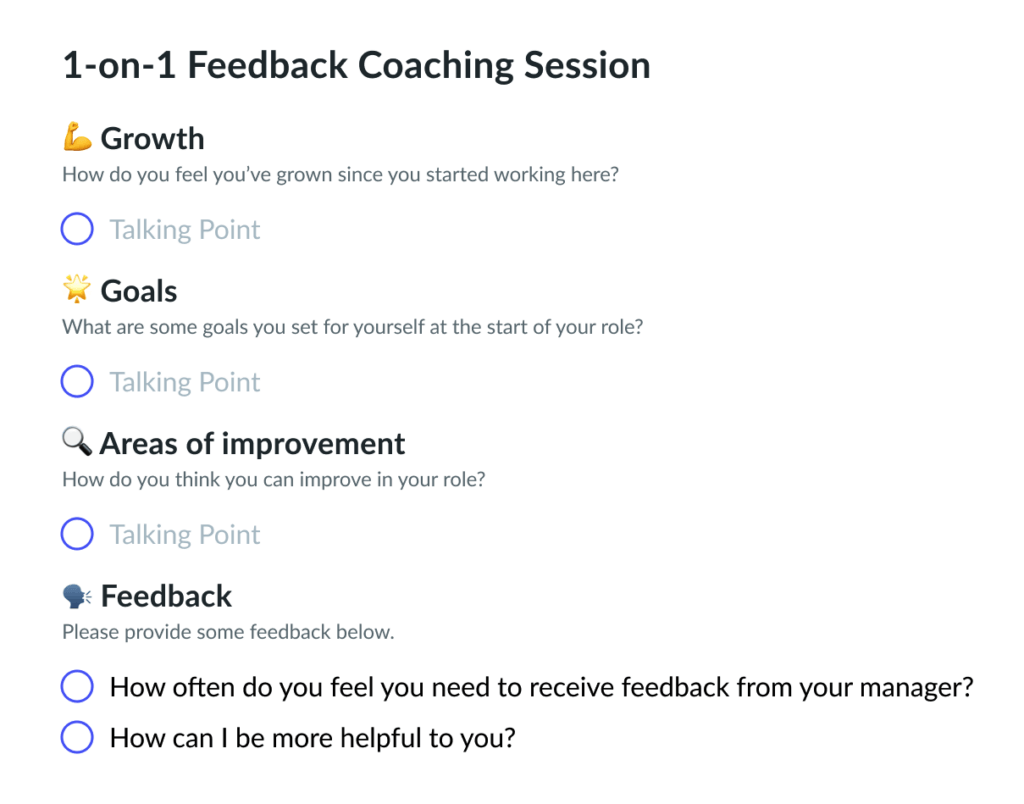
Master areas of improvement with Fellow
In today’s day and age, there is no shortage of resources that are readily available at your fingertips to improve your skills as a manager. Take Fellow, for example, the world’s leading meeting management software that empowers managers to streamline communication and boost productivity.
With Fellow’s all-in-one AI meeting transcription and management software, you’re able to streamline communication, centralize agendas and notes, and seamlessly integrate with your favorite tools – Fellow empowers you to foster a culture of collaboration and accountability with your team. With the real-time feedback feature, you can easily ask for input on your meetings and performance, ensuring you have the insights you need to improve and grow continuously.
Equipping yourself with these essential resources will propel you to excel in the art of effective leadership. Take charge of your meetings, enable better collaboration, and master the key areas of improvement with Fellow.
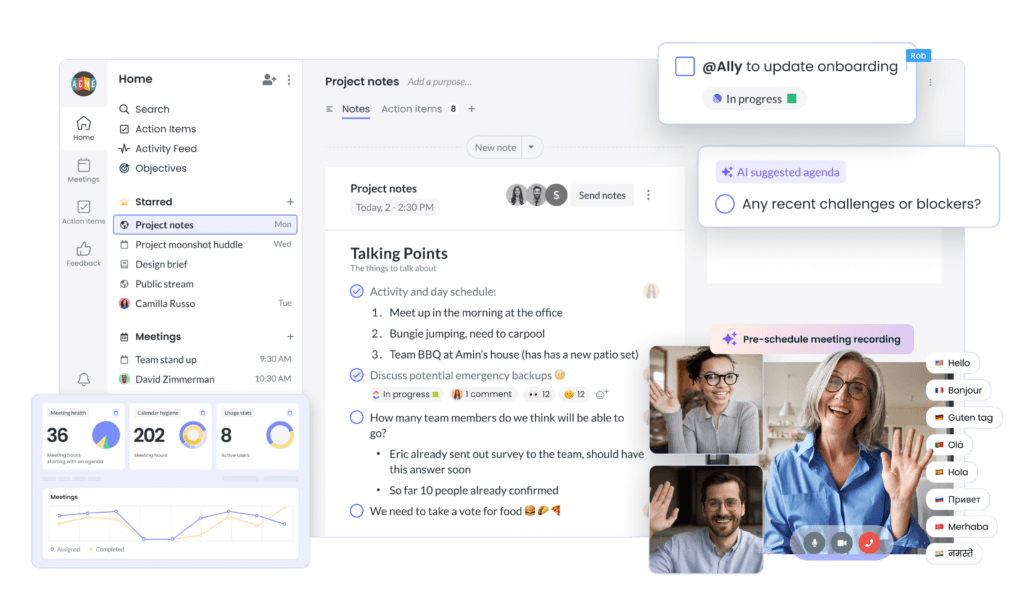
Parting advice
By carefully taking these highlighted areas of improvement into consideration, you’ll be strategically equipping yourself with the essential resources and indispensable knowledge required to ascend the managerial ladder. It’s imperative not to overlook the invaluable insights waiting for you on the Fellow blog, offering an abundance of additional tips and expert advice. Embracing these opportunities for growth will undoubtedly pave the way for your continued success in the realm of effective management.
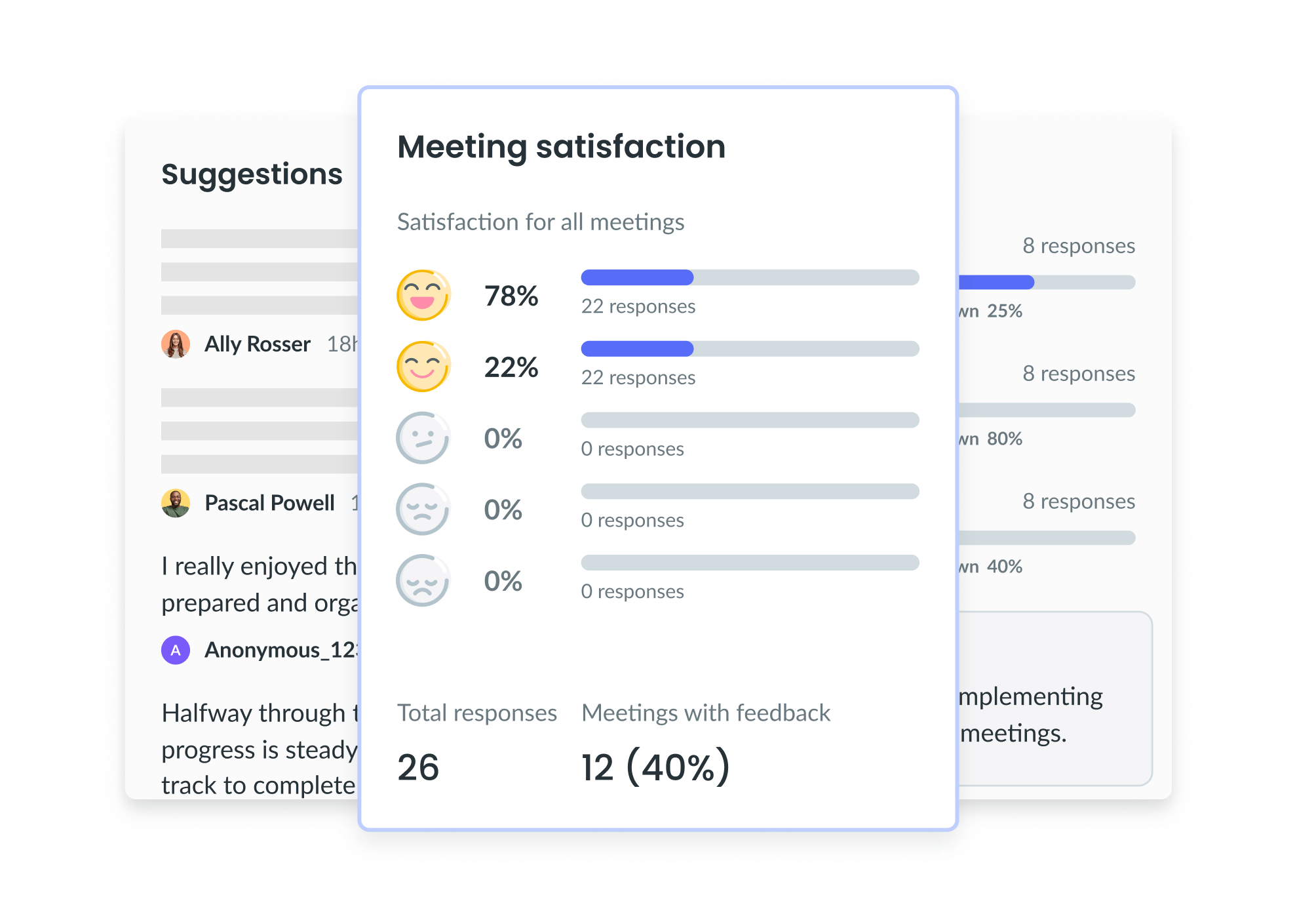









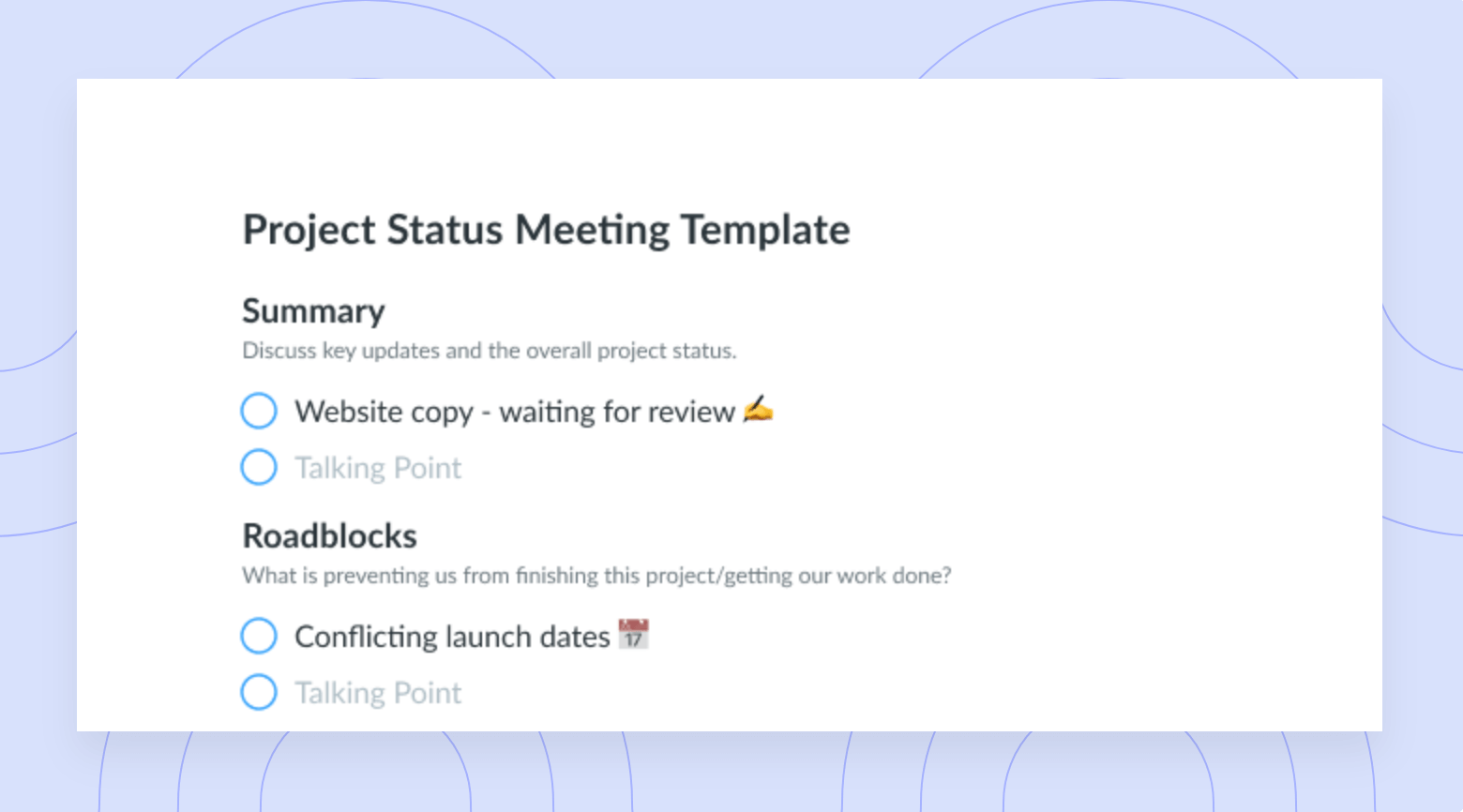
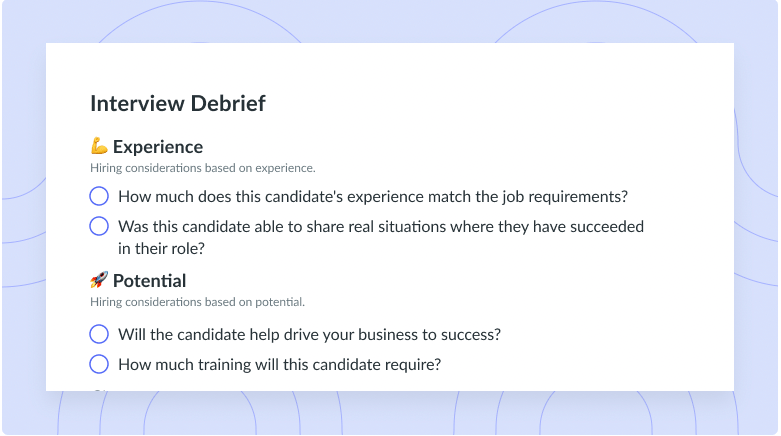
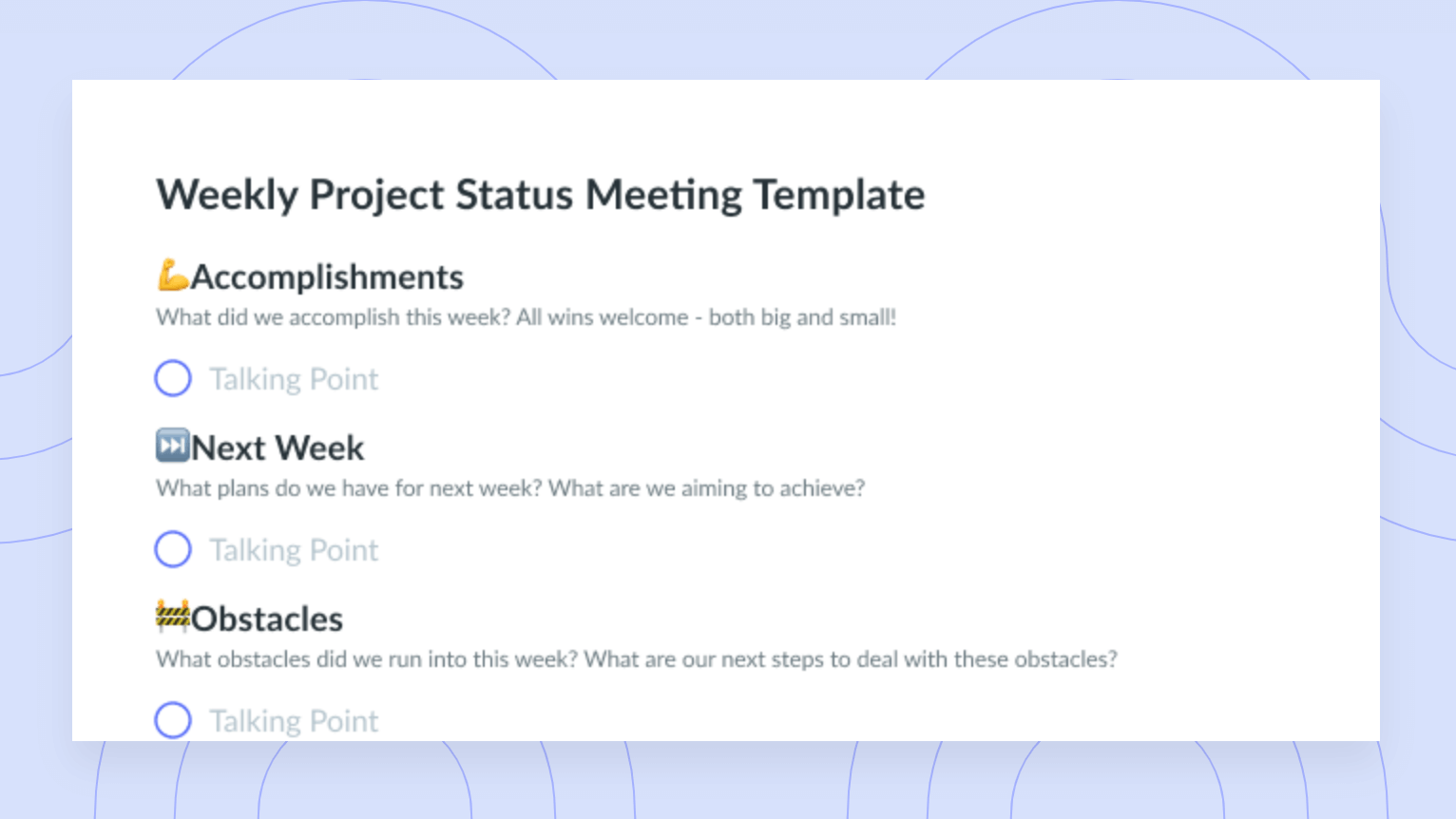
![Incoming Client Interview [Legal Clinic] Template](https://fellow.app/wp-content/uploads/2021/09/Incoming-Client-Interview-Legal-Clinic-preview.png)
